Middle East
How Trump took credit for the Gaza ceasefire – and then let it unravel | Israel-Palestine conflict News
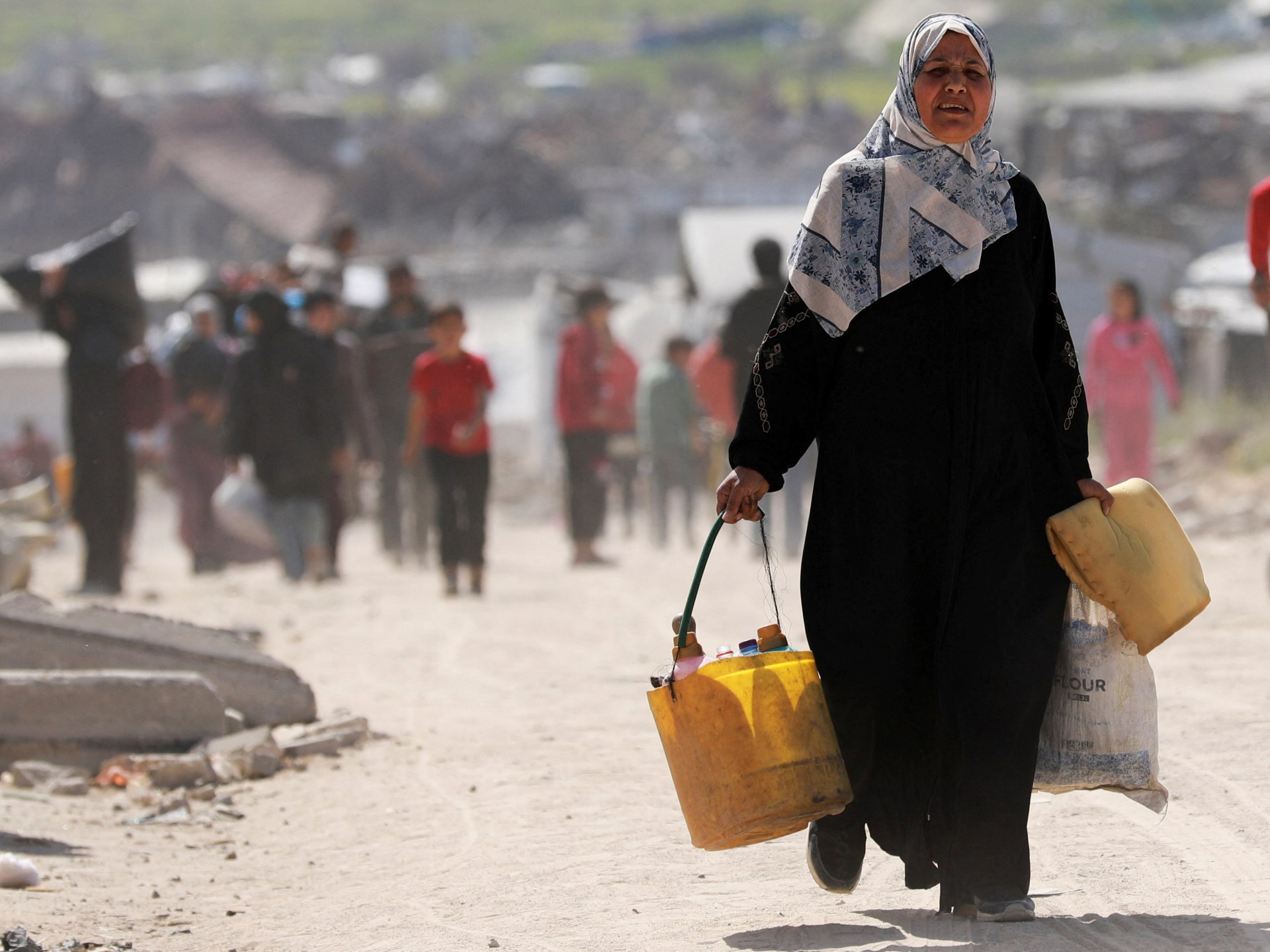
Washington, DC – Images of Palestinian children killed by Israeli bombardment are back in the news after a brief reprieve that only lasted a few weeks.
Nearly two months after United States President Donald Trump took office, the ceasefire that had halted Israel’s war in Gaza has shattered, and the region is once again at war.
That comes despite Trump’s own pledge to pursue peace in the Middle East and across the world.
Trump took credit for the truce earlier this year, but he is now backing Israel’s renewed assaults in a conflict that he once promised to end.
Analysts say Trump – a staunch Israel supporter – was more interested in generating headlines about helping to secure the ceasefire than actually ending the war. He also floated plans to ethnically cleanse Gaza, by removing its residents to make way for a riviera-style resort.
“We could see evidence of Trump’s insincerity in the ceasefire almost immediately after he took office – when he started calling for the forced displacement and ethnic cleansing of all Palestinians from Gaza on a permanent basis,” said Josh Ruebner, a lecturer at Georgetown University’s Program on Justice and Peace.
“So, it’s not at all a surprise to see the Trump administration greenlight the resumption of massive Israeli violence against Palestinians in Gaza.”
Early signs
In the weeks leading up to the latest bombardment, there were signs that Israeli Prime Minister Benjamin Netanyahu never intended on fully honouring the ceasefire – and that Trump was not invested in upholding the deal, either.
Early in February, Trump said he has “no guarantees that the peace is going to hold” in Gaza.
Even before the ceasefire went into effect in January, Netanyahu claimed that the deal was “temporary” and that both Joe Biden – who was in the final days of his presidency – and Trump have given “their full backing to Israel’s right to return to fighting”.
Moreover, Israel has repeatedly violated the deal by firing at Palestinians almost daily and blocking the entry of mobile homes into the territory, where many buildings have been levelled or rendered unsafe.
Then, on March 2, Israel imposed a total blockade on humanitarian aid destined for Gaza.
The ceasefire agreement was supposed to include three phases. The first stage, which expired early in March, saw the release of about 30 Israeli captives and hundreds of Palestinian prisoners as the guns fell silent.
But Israel did not agree to move to the second phase of the deal that would see a permanent end to the war. A third stage would have eventually focused on reconstruction in the territory.
Instead, Netanyahu and the Trump administration insisted on extending the first part of the ceasefire deal. But the Palestinian group Hamas has been clear in its position: There is no need for new initiatives because there is an internationally backed pact in place that all the parties have already agreed to.
Truce ‘served its purpose’ for Trump
Ruebner said Trump only wanted a temporary ceasefire to free more Israeli captives without pressuring Israel to commit to ending the war.
In a joint appearance with Netanyahu in February, Trump also expressed his desire for the US to “own” Gaza and turn it into a “Riviera of the Middle East”.
But since Trump’s proposal was met with overwhelming international rejection, the US president allowed Israel to “resume this frightening scale of violence” against Palestinians, Ruebner said.
In the days since Israel renewed its assault on Gaza, hundreds of Palestinian civilians, including children, have been killed with the support of the US president, who had promised in his inauguration speech to leave the legacy of a “peacemaker”.
Annelle Sheline, a research fellow at the Quincy Institute for Responsible Statecraft, said she was surprised that the truce lasted for weeks even after it “served its purpose” for Trump.
“Trump’s motivation in pushing for the ceasefire was to show that he could achieve what Biden could not, and he did so before even reentering the White House,” said Sheline.
“At the time the ceasefire was enacted, there was a lot of scepticism that it would reach phase two, as this would involve negotiations around a more permanent cessation of hostilities, which Israel and specifically Netanyahu had no interest in agreeing to.”
The Center for International Policy (CIP), a US-based think tank, also said Trump “bears considerable responsibility” for the collapse of the ceasefire.
“While Trump’s team had an early success in assisting the administration of former President Joe Biden in negotiating the hostage release and ceasefire, he has since enabled this massive failure in his own diplomacy through a series of brazen missteps,” Dylan Williams, CIP’s vice president for government affairs, said in a statement.
A ‘showman’
Williams cited Trump’s “obscene proposal” to force Palestinians out of Gaza, as well as the president’s backing of Netanyahu’s push to re-write the ceasefire deal, as decisions that make him a “full partner in this bloodshed”.
Despite the civilian death toll, the Trump administration has voiced unqualified support for Israel and its military campaign in Gaza.
YL Al-Sheikh, a Palestinian American writer and organiser for the Democratic Socialists of America, described Trump as a “showman” who wanted a “big thing” to brag about.
But Al-Sheikh underscored that the US president has failed to get Netanyahu to permanently end the war and to get Hamas to release the remaining captives.
“So he just wants to pummel on somebody,” Al-Sheikh said. Palestinians, he added, are “the natural target”.
So, what happens next?
Analysts fear that the Israeli offensive will intensify, leading to more death and destruction, in a campaign that leading rights groups and United Nations experts have already described as a genocide.
“Trump and Netanyahu are aligned in their desire to remove Palestinians from Gaza, either by killing them or through ethnic cleansing and forced removal,” said Sheline.
Al-Sheikh also predicts that the violence will persist: “We’re going to go in this merry-go-round until either Netanyahu fails to keep his government together or until Trump gets tired of it.”
Middle East
US attacks Yemen again after at least 80 people killed in Hodeidah | Israel-Palestine conflict News
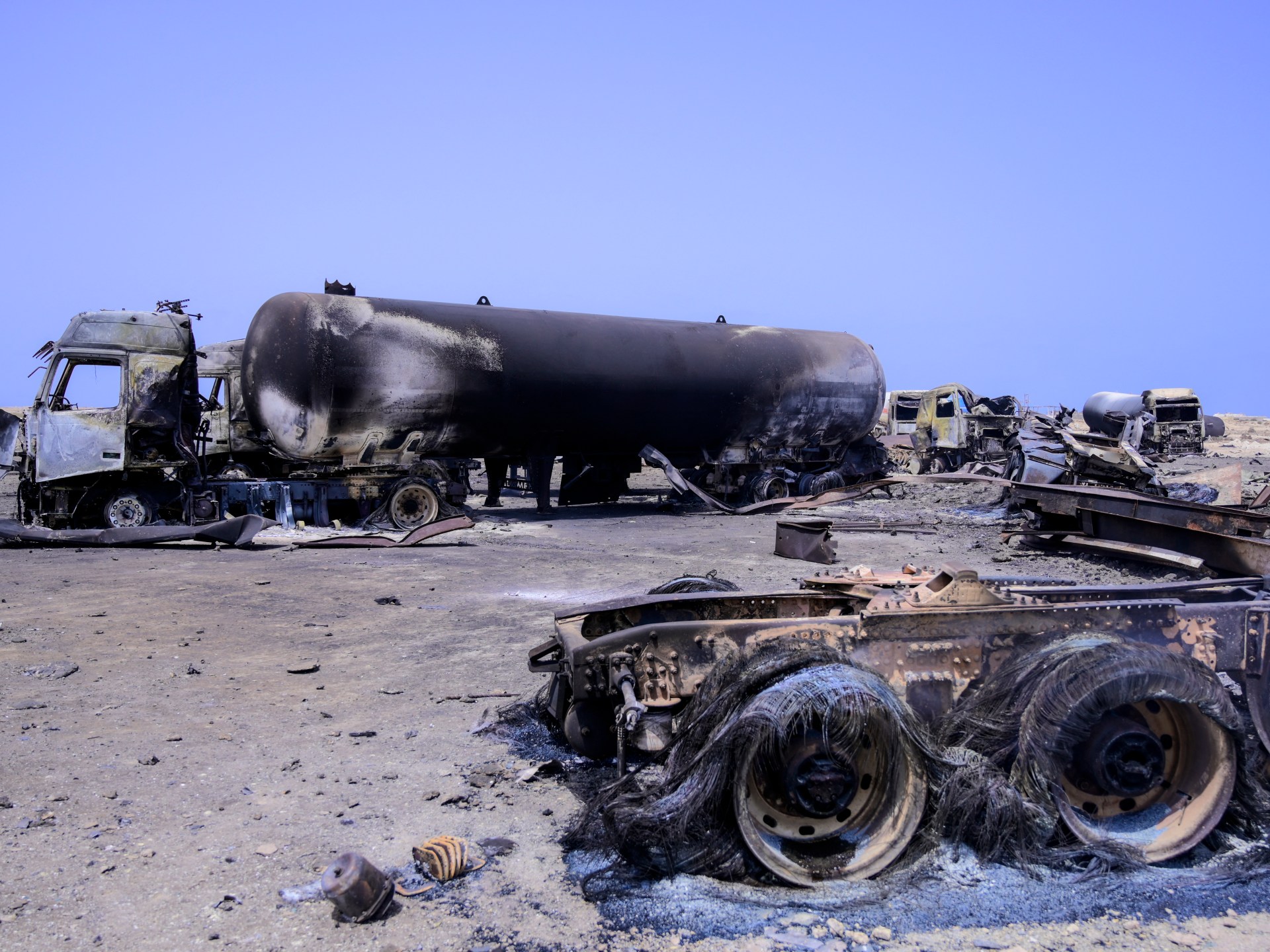
UN chief Antonio Guterres says he is ‘gravely concerned’ about US air strikes this week on Yemen.
The United States has carried out 13 air strikes on Hodeidah’s port and airport, the Houthi-affiliated TV channel Al Masirah says, two days after a US air strike targeted the Ras Isa port, also in Hodeidah, killing at least 80 people and wounding more than 150.
Al Masirah also reported Saturday that three people were killed and four injured due to a US attack on al-Thawra, Bani Matar, and al-Safiah districts in the capital Sanaa.
The Houthis have promised to carry out “more operations” despite the ongoing US attacks.
US President Donald Trump’s administration announced a major military offensive against the Houthis a few weeks ago. It said the air strikes are aimed at forcing the Houthis to stop threatening ships sailing on the Red Sea on a route crucial to international trade.
Since November 2023, the group has reportedly launched more than 100 attacks on vessels it says are linked to Israel in response to Israel’s war on Gaza and in solidarity with Palestinians.
On Friday, Houthi official Mohammed Nasser al-Atifi told Al Masirah that the “American enemy’s crimes” will not deter the Yemeni people from supporting Gaza, but “rather will strengthen their steadfastness and resilience”.
The Houthis, also known as Ansar Allah or “supporters of God”, are an armed group that controls most parts of Yemen, including Sanaa. The group emerged in the 1990s but rose to prominence in 2014 when it seized Sanaa and forced President Abd-Rabbu Mansour Hadi to flee the country.
United Nations Secretary-General Antonio Guterres “is gravely concerned about the airstrikes conducted by the United States over the course of 17 and 18 April in and around Yemen’s port of Ra’s Isa, which reportedly resulted in scores of civilian casualties, including five humanitarian workers injured,” Guterres spokesman Stephane Dujarric said in a statement on Saturday.
Guterres expressed fears of damage to the port and “possible oil leaks into the Red Sea”, Dujarric added.
The strikes on Ras Isa aimed to cut off supplies and funds for the Houthis, the US military said. It was the deadliest attack of Washington’s 15-month campaign against the Iran-aligned group.
About 70 percent of Yemen’s imports and 80 percent of its humanitarian assistance pass through the ports of Ras Isa, Hodeidah and as-Salif.
Ras Isa also is the terminus of Yemen’s main oil pipeline, which, along with its port, are “critical and irreplaceable infrastructure” in Yemen, according to the UN Development Programme.
Middle East
Iran says progress in nuclear talks with US, confirms third round next week | News
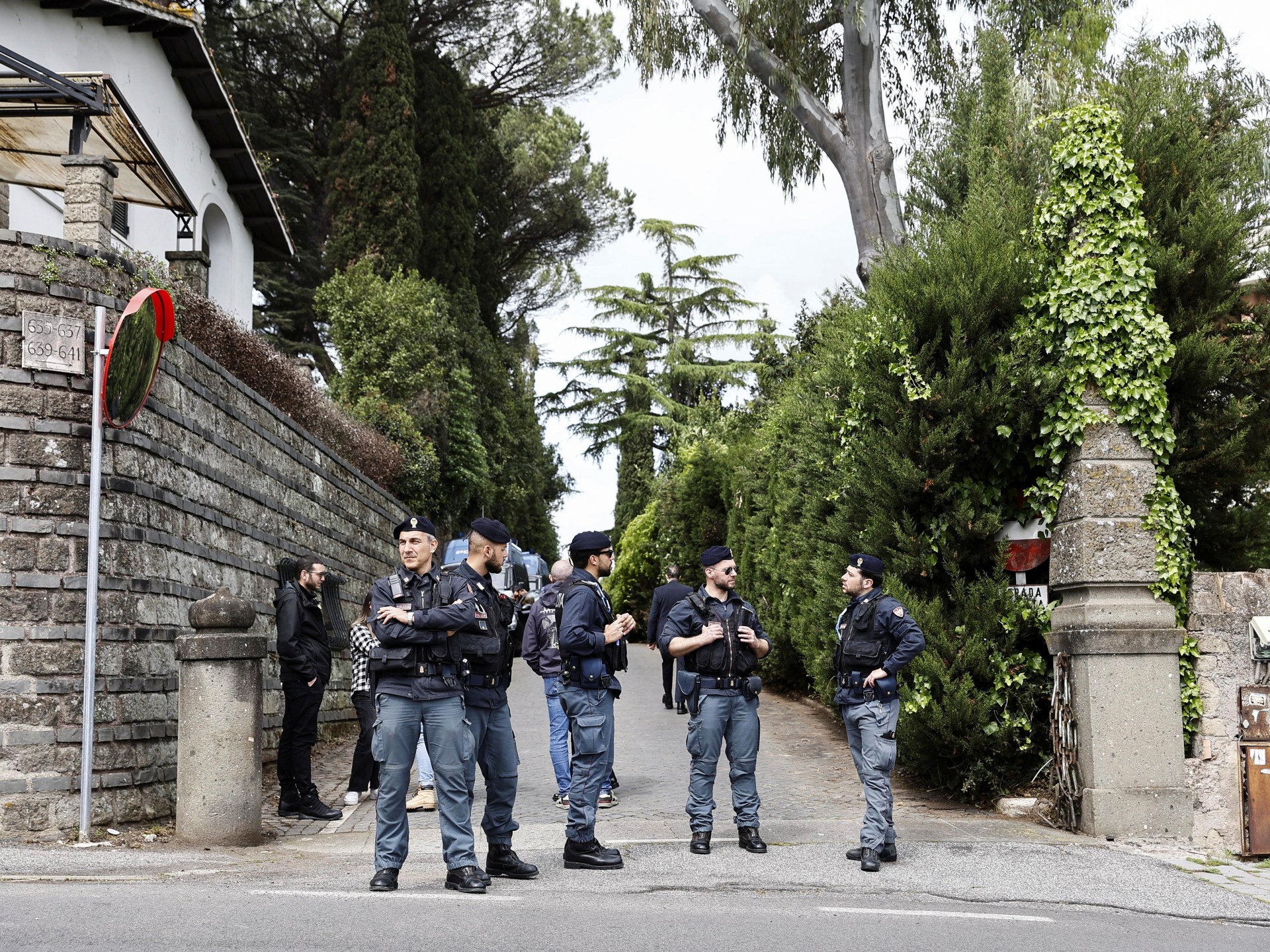
After technical talks, senior negotiators expected to reunite on April 26, according to Iran’s foreign ministry.
Iran and the United States have completed a second round of indirect nuclear negotiations, which Iran’s foreign minister has described as “constructive” and moving forward with further meetings planned in the coming week.
Abbas Araghchi and US Middle East envoy Steve Witkoff held four hours of indirect talks at Oman’s embassy in the Italian capital, Rome, on Saturday, according to Araghchi.
“We succeeded in reaching a better understanding on certain principles and goals,” the diplomat was quoted by the semiofficial Tasnim news agency as saying. “The negotiations were conducted in a constructive atmosphere and are progressing.”
There has been no readout yet of the meeting from the US side.
The delegations – led by Araghchi and Witkoff, a billionaire real estate executive whom US President Donald Trump has dispatched on numerous foreign policy missions – stayed in separate rooms in the embassy as Omani Foreign Minister Badr al-Busaidi shuttled messages between them, according to Iranian officials.
Iran’s Ministry of Foreign Affairs said the parties will hold more indirect, technical-level talks in the coming days, followed by another meeting with senior officials on April 26.
There were useful indirect talks today between Iran and the United States conducted by Oman Foreign Minister in a constructive atmosphere.
The two sides agreed to continue the indirect talks in few days at technical level to be followed by another round at their own level on…
— Esmaeil Baqaei (@IRIMFA_SPOX) April 19, 2025
“I hope that after next week’s technical sessions, we’ll be in a better position,” Araghchi said, according to Tasnim. “There’s no reason for excessive optimism or pessimism.”
‘Negotiations to pick up’
Al Jazeera’s James Bays, reporting near the Omani diplomatic compound in Rome, said the Iranian response was “very positive” for a delegation that “had seemed pretty negative going into the talks”.
Next week’s planned talks mean “the pace of negotiations is going to be picked up”, Bays said.
The latest meeting comes a week after Iran and the US came together in Muscat for their first high-level discussions since Trump in 2018 unilaterally abandoned a landmark nuclear accord signed and brokered by world powers in 2015.
The Iranians “are looking for a kind of consistency when it comes to the current talks”, Al Jazeera’s Tohid Asadi reported from Tehran.
Will US accept civilian nuclear programme?
Western governments, including the US, have long accused Iran of seeking to develop nuclear weapons – an allegation Tehran has denied, insisting its nuclear programme is solely for peaceful civilian use. On Wednesday, the head of the International Atomic Energy Agency, Rafael Grossi, said Iran was “not far” from possessing a nuclear weapon.
Grossi was also in Rome on Saturday meeting Italian Foreign Minister Antonio Tajani. Grossi’s nuclear watchdog would likely be central in verifying compliance by Iran should a deal be reached, as it did with the 2015 accord.
The US and Iran have had no diplomatic relations since shortly after Iran’s 1979 Islamic Revolution. After returning to office in January, Trump revived his “maximum pressure” sanctions campaign against Tehran, but in March, he sent a letter to Iranian Supreme Leader Ali Khamenei calling for renewed negotiations – while warning of military consequences if diplomacy fails.
“I’m not in a rush” to use force, Trump said on Thursday. “I think Iran wants to talk.”
On Friday, Araghchi said the US showed “a degree of seriousness” during the first round of talks but questioned Washington’s “intentions and motivations”.
Bays said the heart of the dispute remains whether Iran may maintain a civilian nuclear programme – or whether, as hardliners in Washington insist, it must dismantle its nuclear programme entirely.
“All they’ve been talking about last week in Muscat and here in Rome is a framework for the discussions and what they want to achieve,” Bays said. “They have not been discussing the nuclear detail, … and the devil is in the detail on these things.”
Middle East
Over 170 arrested for attacks on Pakistan KFC outlets in Gaza war protests | Israel-Palestine conflict News
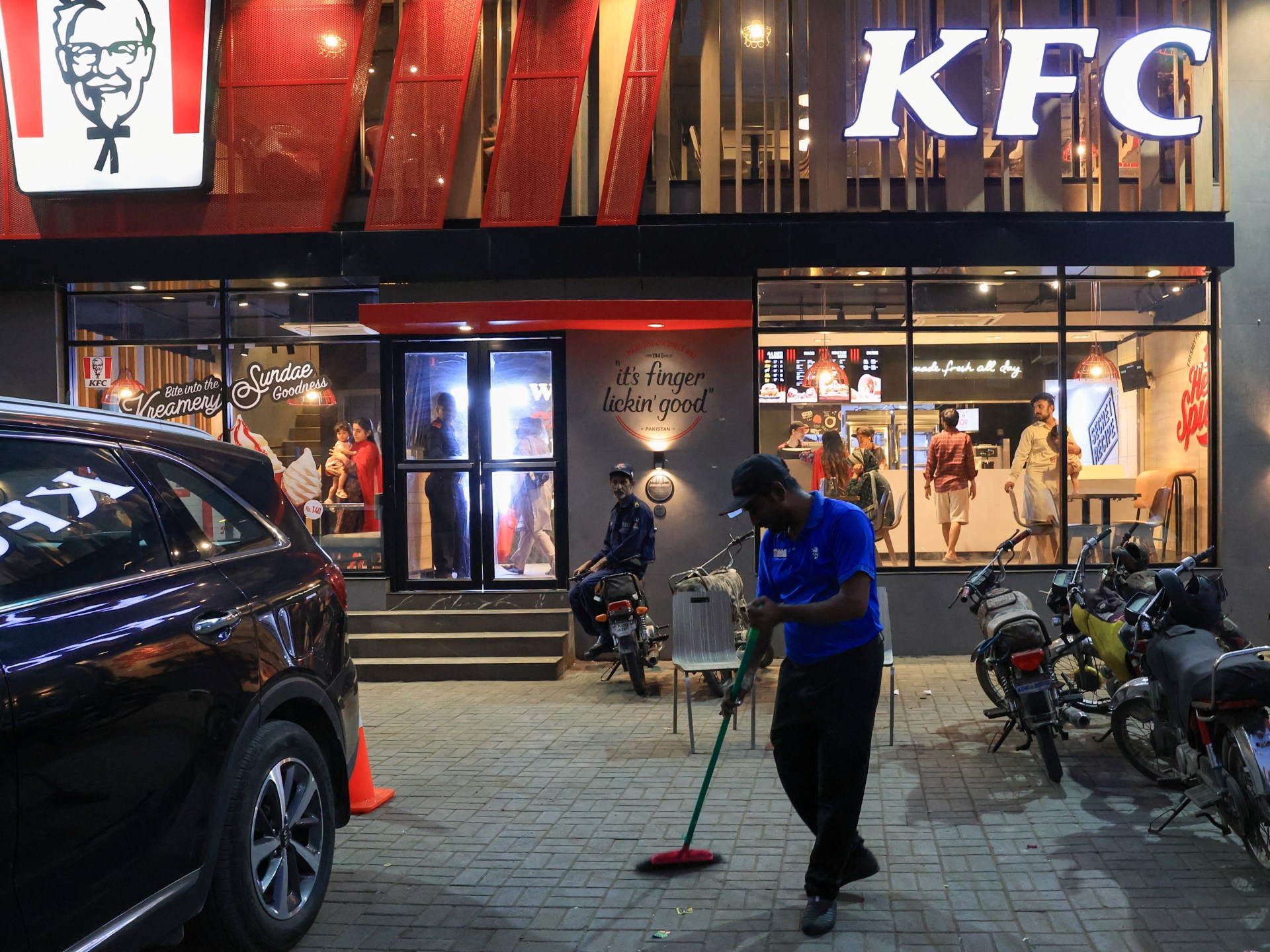
Western brands have been hit by boycotts and other forms of protests in Muslim-majority countries due to the Gaza war.
Police have arrested close to 200 people in Pakistan in recent weeks after more than 10 group attacks on outlets of the United States-based fast-food chain KFC, sparked by anti-US sentiment, unconditional US backing for Washington’s close ally Israel and opposition to Israel’s war in Gaza, officials say.
The fast-food chain has become a target of protest and boycott calls by Islamist parties since the start of the war in Gaza as they link the brand to US support for Israel.
At least 178 people have been arrested, the officials said this week.
Police in major cities in Pakistan – including the southern port city of Karachi, the eastern city of Lahore and the capital, Islamabad – confirmed at least 11 incidents in which KFC chicken restaurants were attacked by protesters armed with sticks and vandalised.
A police official, who spoke on condition of anonymity, said one KFC employee was shot and killed this week in a store on the outskirts of Lahore by unknown gunmen. The official added there was no protest at the time and police were investigating whether the killing was politically motivated or for some other reason.
In Lahore, police said they were ramping up security at 27 KFC outlets after two attacks took place and five were prevented.
“We are investigating the role of different individuals and groups in these attacks,” Faisal Kamran, a senior Lahore police officer told the Reuters news agency, adding that 11 people, including a member of the Islamist party Tehreek-e-Labbaik Pakistan (TLP), have been arrested in the city. He added the protests were not officially organised by the TLP.
TLP spokesman Rehan Mohsin Khan said the group “has urged Muslims to boycott Israeli products, but it has not given any call for protest outside KFC”.
“If any other person claiming to be a TLP leader or activist has indulged in such activity, it should be taken as his personal act which has nothing to do with the party’s policy,” Khan said.
Western brands have been hit by boycotts and other forms of protests in Pakistan, other Muslim-majority countries and several Western nations over Israel’s military offensive in the Gaza Strip.
In February last year, McDonald’s cited boycott campaigns in the Middle East, Indonesia and Malaysia for sales growing just 0.7 percent during the fourth quarter of 2023, compared with 16.5 percent growth in the same quarter the previous year.
Unilever – which produces Dove soap, Ben & Jerry’s ice cream and Knorr stock cubes – also said sales in Indonesia in the same quarter had experienced a double-digit decline as a result of “geopolitically focused, consumer-facing campaigns”.
A KFC restaurant in the Pakistan-administered region of Kashmir was also set on fire in March last year as protesters chanted “Free Palestine.”
More than 51,900 people have been killed in Gaza during Israel’s war, which began 18 months ago.
At least 1,139 people were killed in Israel during the Hamas-led attacks of October 7, 2023, and more than 200 were taken captive.
KFC and its parent company Yum Brands have not yet responded to news of the arrests in Pakistan.
-

 Education2 days ago
Education2 days agoHarvard’s battle with the Trump administration is creating a thorny financial situation
-

 Sports2 days ago
Sports2 days agoAaron Rodgers ‘not holding anybody hostage’ as he decides his future, retirement a possibility
-
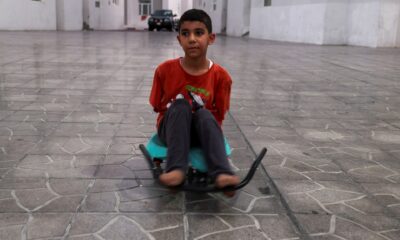
 Conflict Zones1 day ago
Conflict Zones1 day ago‘How do I live like this?’ asks Gaza boy who lost arms in Israeli attack | Gaza News
-

 Europe2 days ago
Europe2 days agoLive updates: Trump news, Ukraine peace talks, US immigration, tariffs and university funding
-
Europe1 day ago
Italy cable car: Four people killed, one injured as car plunges into a ravine
-

 Conflict Zones1 day ago
Conflict Zones1 day agoTrump says US may ‘pass’ on helping end war if Russia, Ukraine resist deal | Russia-Ukraine war News
-
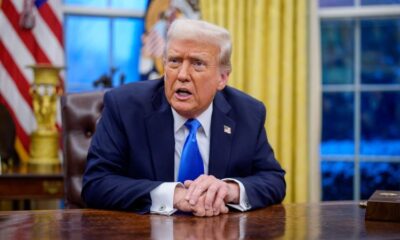
 Europe2 days ago
Europe2 days agoThe Trump administration says Europe is taking advantage of the US. That’s not exactly true
-

 Europe22 hours ago
Europe22 hours agoTrump administration ready to recognize Russian control of Crimea as part of framework to end Ukraine war, source says




